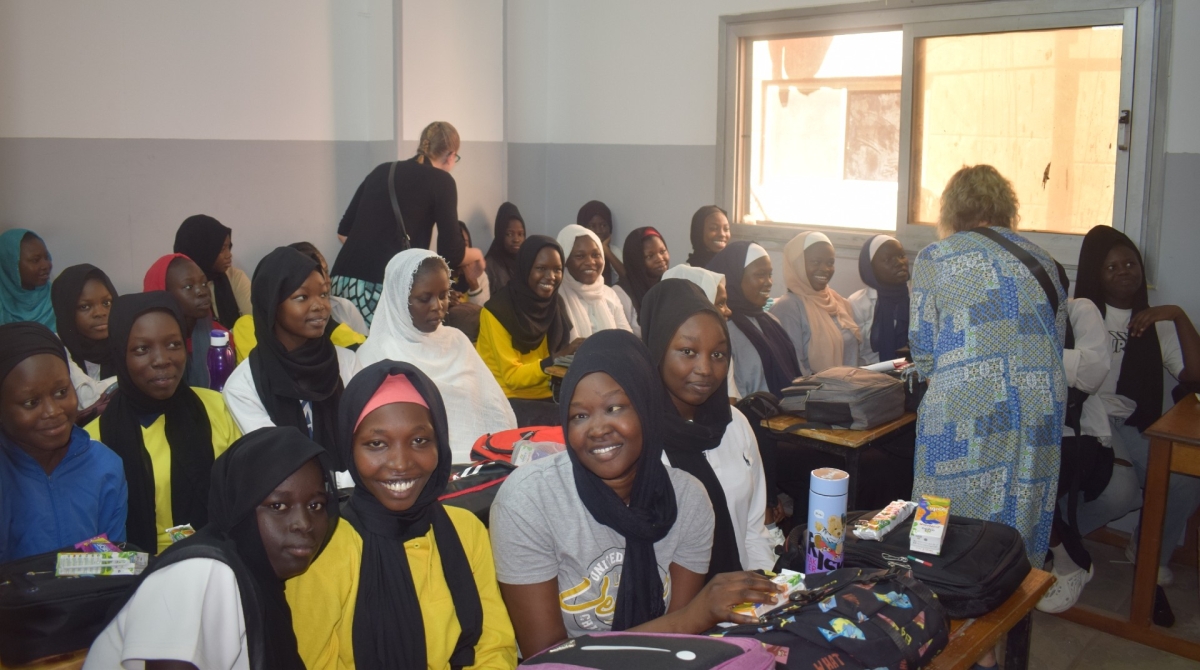The start of a new school year is an exciting time for any child but for the pupils at St Raphael’s School it has extra significance. St Raphael’s is a school for Sudanese refugee children, run by the Diocese of Egypt and situated in one of the most run-down areas of Cairo.
It began at the outset of the various crises that have beset Sudan, in 2015, with just three classes and now it has twelve, catering for around two hundred and sixty children aged four to eighteen. For those who attend, this is their first opportunity to gain a foothold in their new society, with the possibility of a full education. The school offers exams according to the Sudanese curriculum, supervised by the Sudanese Embassy in Cairo, which can give access to university. For others it will provide access to employment and some vestige of settlement. But in the meantime things are far from easy.
I am visiting the school with a small party of people from the United States who have come on a familiarisation tour organized by Kristin Jacobs, head of the Diocesan Partnership Office. All the school staff are Sudanese, and the school population includes both Christians and Muslims. The headmaster, Mr Helmi, tells us that simply keeping the children from the streets is performing a great service for them. They face many dangers he says. There are dangers from neglect since parents will spend long hours out of their homes looking for work or working long hours. There are the dangers of exploitation and abuse which are common threats to children in poor neighbourhoods throughout the world. And there are specific threats to their safety from the inter-tribal violence which is endemic.
He tells us wryly that there are said to be ninety-nine tribes in Sudan. One of the things that makes him proud about the school is the influence it has been for reconciliation and mutual understanding. “Here,” he says, “we have no tribes. We are all Sudanese.” The school has contracted with an NGO to provide extra help in teaching children about containing and finding alternatives to violence as well as providing sex education. Welfare needs are catered for. All pupils are provided with lunch, and in some instances breakfast.
The school is partly self-funding and each child has to pay around fifty euros a year for their place. In order to make sure that no-one is excluded on financial grounds, the local churches have been providing fifty euro ‘scholarships’ but of course there is always a demand for more. Within the year the headmaster hopes to move to new larger and more suitable premises. The Church has acquired suitable accommodation but is presently in further negotiations, dealing with local residents who are wary about having such a school on their doorstep. The new building will also act as a community centre for Sudanese refugees and be a place of worship, complementing the several other Sudanese congregations in the city.

The pupils themselves are bright-eyed, enthusiastic and delighted to be able to practice their English. As we enter each room the teacher says “Hello, how are you?” and in unison and very deliberately receives the response, “I am just fine thank you.” May it be so.
